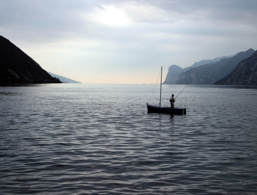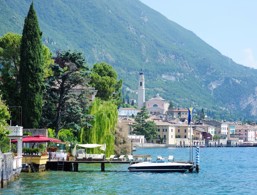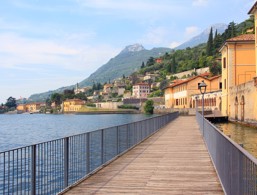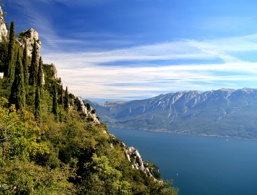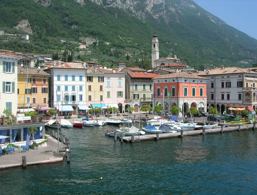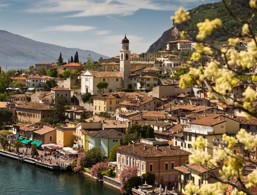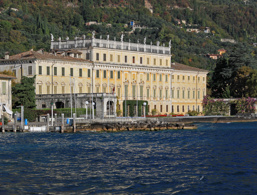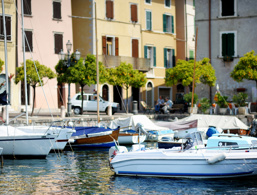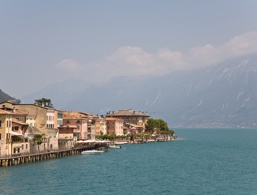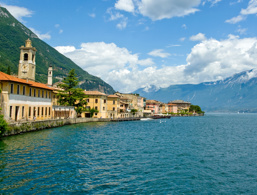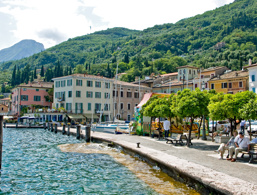Holidays in Gargnano at Lake Garda
The small but charming village of Gargnano is part of an extensive municipal area directly on the western shore of Lake Garda and can be reached via the famous and attractive shore road Gardesana.
From Toscolano-Maderno you reach the tranquil hamlet of Bogliaco, a tiny village of Gargnano, composed of a small harbour and old palazzi. If you head south from the village of Villa you get to the very centre of Gargnano, where Monte Denervo (1495 m) looks over.
Including all hamlets, Gargnano has about 3,200 inhabitants. As for the extent of the area itself, it is one of the larger communities on the west bank. The population density is rather low.
Gargnano is known internationally, which is mainly due to the English writer David Herbert Lawrence, who was here between 1912 and 1913. In many of his works, and for example in "Crepuscolo in Italia" (Italian Twilight, 1916), Gargnano is often referenced.
Around the harbour, there are some beautiful palaces from the 19th century. The City Palace, the seat of the municipal association, dates back to the 16th century. In its facade and in some other houses of the neighbourhood, cannon balls have been walled in, giving the observer a graphic reminder of the attacks from Austrian troops during the third Italian liberation struggle in 1866.
In the Palazzo Feltrinelli is the centre for the University of Milan. It once was the seat of the fascist government of the Italian Social Republic under Mussolini but is now dedicated to the promotion of the Italian language and culture (CALCIF). There is also a state institute devoted to the art of the region.
Sights in Gargnano
Church & Convent San Francesco
Monks of the Franciscan order, founded in 1266 by Father Bonaventura, once lived here. Today, the monastery complex serves as the venue for various exhibitions. Lemon trees, monks, fish, birds and cedars from the 12th century are chiselled on the capitals of the portico. This suggests that the spiritual community was one of the first to introduce the cultivation of citrus (fruit) on the shores of Lake Garda.
San Giacomo de Calì
The origins of this church go back to the 12th century, and it can be found on the northern outskirts of Gargnano.
Villa Bettoni Cazzago
This enchanting villa is one of the most impressive buildings in this area of the lakefront. The construction of the Baroque palace, which faces the lake, began in the 18th century. The structure consists of three floors plus another level with a marble balustrade decorated with sculptures. The interiors are also splendidly decorated. The surrounding green area is reminiscent of Tuscan villa gardens with many stairs and niches with statues.
